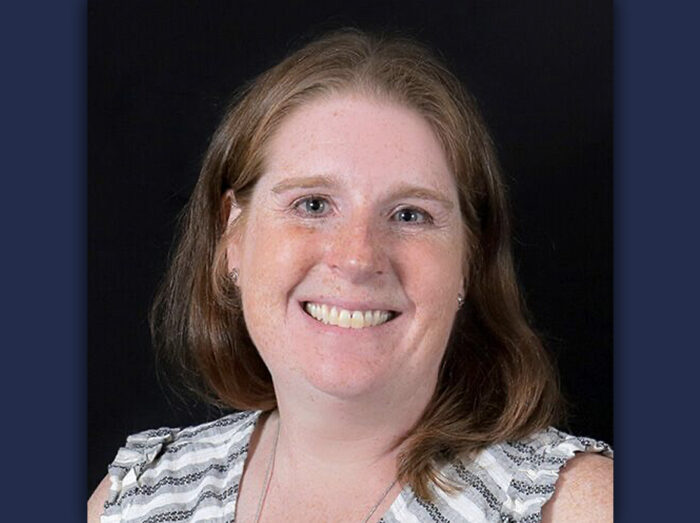Elizabeth Schooley works in Medical Affairs at IDEXX Laboratories today, but is a veterinary specialist by trade and practiced for several years before transitioning into a business role. Her search to further her professional development led her to Darden Executive Education & Lifelong Learning’s Women in Leadership Program. She shares why she chose Darden, how she was able to apply learnings from the program right away in her role and why this program is for every leader, even if you don’t have a business background.
Tell us more about your background and journey to your current role.
I work for a veterinary diagnostic and technology company called IDEXX Laboratories. However, I am a veterinarian by training. After college, I attended vet school and performed a residency leading to specialty credentials in small animal internal medicine. I practiced for several years and I realized that I was interested in trying to work in the veterinary industry supporting a company in a medical capacity. I started working for IDEXX, and I have now been with them for 13.5 years.
Over my time at IDEXX, I’ve held positions where I’m consulting with our veterinary customers and other leaders, as well as managing people. In my current position, I work in Medical Affairs, where I collaborate with our marketing, research and development, and business to assure medicine is at the heart of all our products and the medical needs of our patients are kept front and center.
What prompted you to take the Women in Leadership Program?
I discovered the Women in Leadership Program through a search online. I had done several internal professional development courses at our company, and they were great experiences, but I found that I had gone through the entire leadership catalog that was available to me, so I started looking externally for furthering my leadership development.
Since I’m a Virginia resident, the University of Virginia and Darden popped up in my research. The Women in Leadership Program was the first one that I noticed, and it was interesting to me because I work in an environment where most of our leaders are men. I found that sometimes I could get a little intimidated by them because my science background did not prepare me for the boardroom.
I also liked the idea of sharing the program experience with a female group of people that I don’t work with because you can have open conversations without worrying about company politics or sharing too much information about any specific concern. I was able to connect with some amazing professional women and really create a bond with them.
What are some new skills or perspectives that you took away from the program?
I found the strategic negotiation piece of the program to be particularly valuable. I always felt a little inadequate when I was negotiating because I tend to be a friendly, go-with-the-flow person, and I never wanted to be too pushy. I found that many of us in class felt similarly and were nervous about negotiating. After working through some cases about negotiation and thinking through the issues, we had a practical hands-on activity where we partnered with another classmate and were assigned one side of a negotiation. To have this experience where we had to think through the issues and ask ourselves, “What do we want? What do we need to give? What can we take?” during the whole process, was really good for me.
Since that time, I have used those negotiation skills trying to get new resources at work, working collaboratively with other groups and making sure that we negotiate the right place for my team to fit into the dynamic of our cross-functional teams.
Are there any other parts of the program that you found memorable?
Yes, part of the program focused on organizational design and at the time of the program, my organization had just gone through a global reorganization. There’s always some chaos that comes with these big reorganizations, and I was starting to lead a new group of individuals. Having learned more concretely some of the aspects about organizational design helped me understand where our leaders were coming from, how to best leverage the new structure for my team and how we ultimately fit within the new system.
There are many people, like yourself, who come to our programs without a business background, but they have a high degree of education in another field. What would you say to them if they’re considering an executive education program, but aren’t sure if it’s the right fit for them?
I would say that taking an executive education program is great for anyone who wants to have a leadership position or has a strategic position within their organization. You learn so much in your early education, but never get the opportunity to think about business and specifically about leadership – how to lead and inspire people. Some of that comes naturally, but to listen and learn from the Darden faculty about leadership was an amazing experience. The faculty were so engaging and receptive to questions and conversations. I was able to identify gaps in my knowledge and learn how I could fill them.
Taking this program gave me frameworks and springboards to use as soon as I went back to the office. It’s valuable no matter what your background is, and especially if you want to move forward in fields in which you didn’t originally plan on working.




